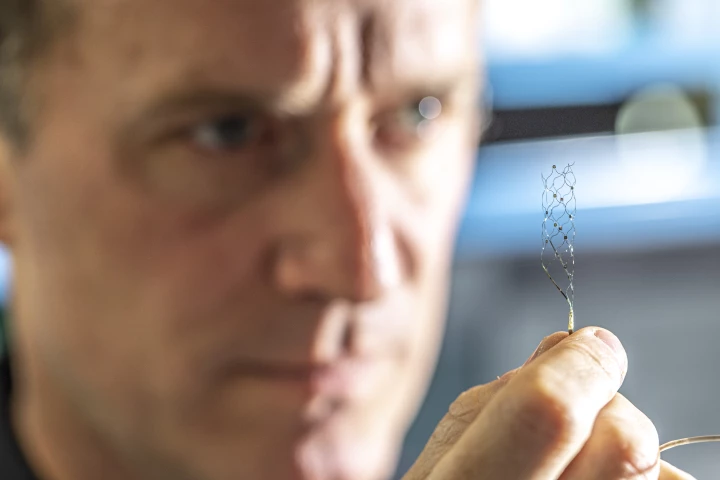Brain Computer Interface
-
Australian startup Synchron, backed by Bill Gates and Jeff Bezos, looks set to beat Elon Musk's Neuralink to market with a safe, reliable brain-computer interface that any hospital can quickly install – without cutting a hole in your skull.
-
Several years after Elon Musk's "aspirational" timeframe, Neuralink has announced it's received FDA approval for the first human trials of its brain-computer interface. But it's worth noting that another company has already done more than 50 implants.
-
Elon Musk's startup Neuralink has shown off the latest version of its brain-machine interface, which a monkey uses to wirelessly play Pong with its mind, marking another step forward for the ambitious company.
-
The team behind a project known as BrainGate have made a major breakthrough, demonstrating a wireless brain-computer interface that can read and transmit neural signals at a bandwidth that is on par with wired systems.
-
A landmark proof-of-concept study reveals a novel brain-machine interface using ultrasound tracking brain activity to predict subsequent motor movements. The preliminary research suggests a non-invasive way of controlling computers with one's mind.
-
One of their more promising applications for brain computer interfaces involves allowing sufferers of paralysis to regain control of prosthetic devices, something scientists have now demonstrated with a first-of-a-kind plug-and-play device.
-
Neuroscience startup Neuralink is on a mission to develop next-generation brain implants that hook machines up to the human mind, and on Friday founder Elon Musk offered a look at the team’s progress.
-
The human brain's threat response system is state-of-the-art, and this interesting ebike incorporates a brain-machine interface that reads your brainwaves to detect threats and then acts on them before you've had a chance to think about it.
-
Scientists have successfully bridged the gap between organic and artificial. A team has created biohybrid synapses that let living cells communicate with electronic systems, not with electrical signals but with neurotransmitters like dopamine.
-
Researchers in Europe and the UK have managed to connect biological and artificial neurons together. The biological neurons were grown in Italy, sent signals through an artificial synapse in the UK to communicate with artificial neurons in Zurich.
-
A team of international researchers has achieved a world-first breakthrough, decades in the making, creating artificial neurons with the ability to behave exactly like real living neurons. The innovation has potential for treating numerous diseases.
-
Scientists studying brain-computer interfaces at Johns Hopkins University are reporting a big breakthrough, demonstrating a system that enables a quadriplegic to control and gain feedback from two prosthetics arms at once.
Load More











